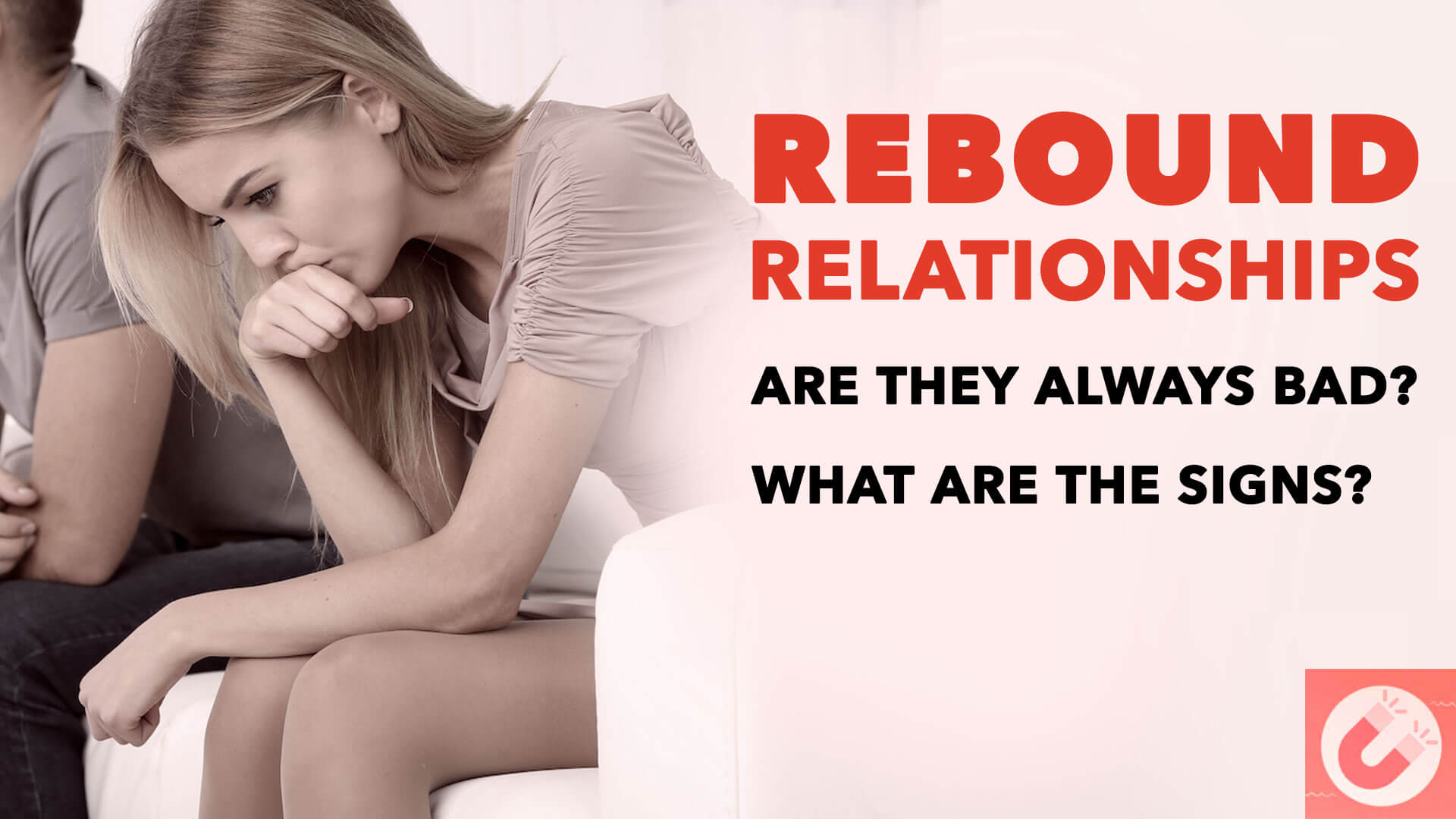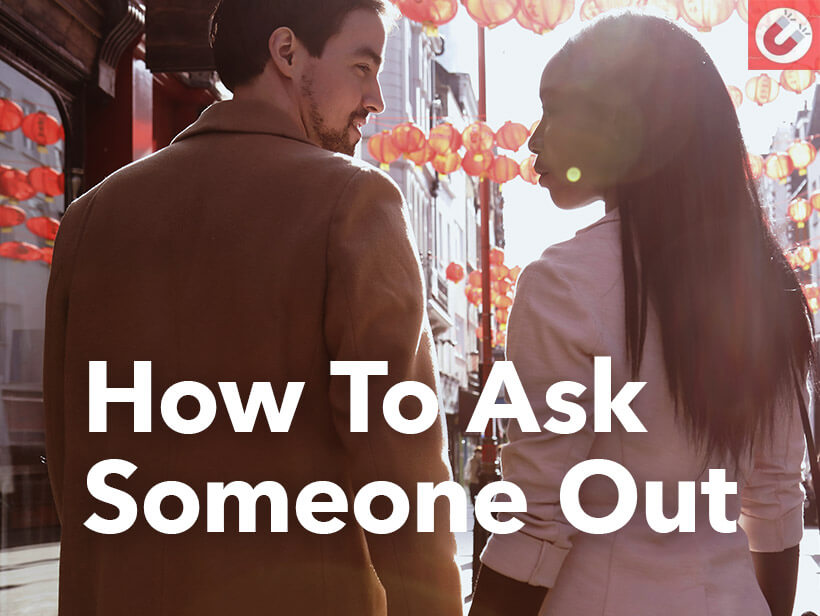Have you recently found yourself in a new relationship shortly after a breakup? Are you questioning whether your new relationship has long term potential or if it’s just a rebound?
You’re not alone. Many people find themselves in this situation, especially if they are fresh from a painful breakup or rushing into dating after a divorce.
Understanding the nature of your relationship and your partner’s intentions are crucial for your future and emotional well-being. A rebound relationship, usually characterized by unresolved issues from a previous relationship, can often lead to more hurt than healing. It’s important to recognize the signs early on to prevent further emotional damage.
But how do you figure out if you’re in a rebound relationship?
What do you do if you are you are in a rebound relationship?
Don’t worry, we are Jaunty and we are here to help!
Whether you’re in a rebound relationship or suspect that you might be, what’s important is to know what you want, and know how to be assertive when you’re not getting what you want.
This article will guide you through spotting the signs of a rebound relationship and it will provide you with the tools to navigate the situation and find a healthy way forward.
What is a Rebound Relationship?
A rebound relationship is a relationship that is initiated shortly after a romantic breakup. It is often characterized by unresolved issues, pain, and unresolved grief from one or more previous romantic entanglements. The primary purpose of a rebound relationship is usually to help a person cope with the emotional distress and void left by a recent breakup.
Are Rebound Relationships Always Bad?
A rebound relationship is not expected to last or grow beyond its current state, and is usually just a fling or temporary fix to the emotional pain one might be experiencing from a previous breakup.
At their worst, rebound relationships can feel like using other people as a Band-Aid to cover our wounds, and they can lead to heartache and regrets.

“Flashback to my mistakes. My rebounds, my earthquakes.”
Taylor Swift – singer, songwriter, and relationship expert
Can Rebound Relationships Ever Be Healthy?
While rebound relationships often have a negative connotation, research suggests that rebounds can be remarkably healthy when executed correctly. They can serve as a healing process for the individuals involved, helping them move on from their past relationships.
However, it’s crucial to approach such relationships with caution and not get entirely caught up in the rush of a new romance. Both parties need to be aware of the rebound nature of the relationship and be willing to communicate openly and honestly about their feelings and expectations.
Why Are Rebound Relationships So Complicated?
Rebound relationships, often sparked in the aftermath of a breakup, are a complex phenomenon.
It Can Be Part Of The Healing Process
One perspective suggests that rebound relationships can be a part of the healing process. The idea is that these relationships can offer emotional support, distraction from the pain of a breakup, and even a boost to self-esteem.
For example, someone might find solace in a rebound relationship, using it to regain a sense of self-worth that was lost in their previous relationship.
- Rebound relationships can act as a coping strategy.
- They can provide a sense of validation and self-worth.
- They can offer a distraction from the emotional pain of a breakup.
The Risky Reality Of Rebounds
On the flip side, the classic perspective suggests that rebound relationships might do more harm than good. This viewpoint argues that such relationships can prevent individuals from fully processing their feelings and might even lead to more heartbreak in the long run.
For instance, someone in a rebound relationship might unintentionally project their unresolved feelings onto their new partner, creating an unhealthy dynamic.
- Rebound relationships might hinder emotional healing.
- They can create unfair expectations for the new partner.
- They might lead to more heartbreak down the line.
A Balanced Perspective Of Rebound Relationships
By integrating these two perspectives, we can see that rebound relationships aren’t inherently good or bad. Their impact depends on the individual’s emotional state, intentions, and the dynamics of the new relationship.
This balanced view helps us understand that while rebound relationships can provide temporary comfort, they also come with potential risks.
- Rebound relationships can be both a salve and a setback, depending on various factors.
- They require careful handling to avoid potential pitfalls.
- They underscore the importance of self-awareness and emotional processing during relationship transitions.
Rebound relationships are indeed complex and nuanced. Every individual and relationship are inherently different, but understanding these perspectives can provide a helpful framework for navigating post-breakup relationships.
Remember, it’s important to approach this topic with open eyes and an open mind, and consider both the potential benefits and drawbacks when entering a rebound relationship.
What Are The Tell Tale Signs Of Rebound Relationships?
There are several signs that you might be in a rebound relationship. These include your partner talking about their ex all the time, very little time has passed between their last relationship and you, keeping things superficial, focusing on sex, emotional unavailability, an underlying feeling of being used, and bitterness. It’s important to note that these signs are not definitive proof of a rebound relationship, but they can be strong indicators.
Next we’ll go into each one in more depth, because if you notice these signs in your relationship, it’s worth taking a closer look at your situation.
How To Know If You’re In A Rebound Relationship
Rebound relationships can be tricky to navigate. They often occur shortly after a breakup and can be characterized by unresolved issues and emotional unavailability. It’s important to recognize the signs of a rebound relationship to ensure you’re not using it as a Band-Aid to cover your emotional wounds. Here’s how to tell if you’re in a rebound relationship:
1. Frequent Mention of Their Ex
If your partner frequently talks about their ex, it could be a sign that they’re not over their previous relationship. They might compare you to their ex or bring them up in unrelated conversations. This is a clear sign that they’re still processing their past relationship and might not be ready for a new one.
2. Little Time Has Passed Since Their Last Relationship
Rebound relationships often occur shortly after a breakup. If your partner jumped into a relationship with you soon after their last relationship ended, it might be a rebound. They might not have had enough time to process their previous relationship and heal from it.
3. The Relationship Is Mostly Physical
If the focus of your relationship is mostly on physical intimacy and less on emotional connection, it might be a rebound. While physical attraction is important, a healthy relationship also requires emotional intimacy and connection.
4. They Are Emotionally Unavailable
Emotional unavailability is a clear sign of a rebound relationship. If your partner is not open about their feelings or avoids deep emotional conversations, they might not be ready for a serious relationship.
5. You Feel Like You’re Being Used
If you have an underlying feeling of being used, it could be a sign that you’re in a rebound relationship. Your partner might be using you to get over their ex or to fill a void in their life. It’s important to trust your gut feeling in this situation.
6. They Are Bitter About Their Ex
If your partner is bitter about their past relationships or still need to get over an ex, it could be a sign that they’re not ready for a new relationship and you may be a rebound. They might blame their ex for the breakup or speak negatively about them. This bitterness indicates that they’re still emotionally invested in a past relationship.
7. The Relationship Progresses Too Quickly
If your relationship is moving at a fast pace, it might be a rebound. Your partner might be trying to reach the same level of intimacy and commitment that they had in their previous relationship. This can lead to a lack of genuine emotional connection and understanding between you two.
How to Navigate a Rebound Relationship?
Navigating a rebound relationship can be challenging but not impossible. The key is to maintain open and honest communication with your partner. Discuss your feelings and concerns, and ensure that both of you are on the same page.
Being in a rebound relationship can be a confusing and emotional time. It’s crucial to understand how to navigate through it to ensure your emotional well-being. If you find that the relationship is causing more harm than good, it might be best to end it. Remember, it’s essential to prioritize your emotional well-being above all else.
Here are some steps to guide you through this process:
1. Recognize the Signs
The first step is to recognize the signs of a rebound relationship. These can include constant talk about an ex, a short time between the last relationship and the current one, a focus on sex, emotional unavailability, and feelings of being used. Be aware of your feelings, confront any red flags, and never put up with relationship deal breakers.
2. Communicate Openly
Open communication is key in any relationship, especially in a rebound one. Discuss your feelings and concerns with your partner. Make sure you both understand the nature of your relationship and you’re both aware of any potential issues in the future.
3. Set Boundaries
Setting boundaries can help prevent emotional damage. Be clear about what you are comfortable with and what you are not. This can include discussions about ex-partners, the pace of the relationship, and emotional expectations.
4. Seek Professional Help
If navigating through a rebound relationship becomes too challenging, seeking help from a professional counselor or dating coach can be beneficial. They can provide you with tools and strategies to cope with your situation.
5. Prioritize Your Emotional Well-being
In relationships, it is often easy to get caught up in trying to make things work, sometimes even at the expense of your own emotional well-being. However, if you find that your relationship is causing you significant stress, anxiety, or unhappiness, it’s important to take steps to prioritize yourself.
This involves assessing the situation objectively. Ask yourself questions like:
- “Is this relationship positively contributing to my life?”
- “Am I compromising too much of my own happiness?”
- “Do I feel valued and respected?”
Be honest with yourself during this introspection. It’s also helpful to talk to a trusted friend or family member, as sometimes they can provide an outside perspective. Your emotional well-being should always be your priority. If the relationship is causing more harm than good, it might be best to end it. Remember, it’s okay to put yourself first.
How can I avoid rebound relationships?
Avoiding rebound relationships starts with self-awareness. Recognize the emotional state you’re in after a breakup. If you’re feeling lonely, vulnerable, or are constantly thinking about your ex, it might not be the best time to start a new relationship. Instead, focus on healing and self-improvement.
Take time to reflect on your past relationship. Understand what went wrong and what you can learn from it. Use this time to grow as an individual and to become a better partner in your next relationship.
Can rebound relationships turn into something serious?
While rebound relationships are often short-lived, they can sometimes develop into something serious. This usually happens when both individuals are aware of the rebound nature of their relationship and are willing to work through their issues together.
It’s important to note that this is not always the case. Many rebound relationships end once the individual who was rebounding has healed from their past relationship. Therefore, it’s crucial to communicate openly and honestly with your partner about your feelings and expectations.
How to End a Rebound Relationship?
Ending a rebound relationship can be a delicate process, especially if the other person is not aware that it’s a rebound. Here are some steps to guide you:
1. Acknowledge Your Feelings
Before ending the relationship, take some time to acknowledge your feelings. Understand why you want to end the relationship and be sure about your decision.
2. Plan the Conversation
Plan what you’re going to say beforehand. Try to be as honest and clear as possible without being hurtful. Remember, it’s not just about what you say, but also how you say it.
3. Choose the Right Time and Place
Choose a quiet, private place to have the conversation. Make sure you both have enough time to talk things through.
4. Be Honest and Direct
Be honest about your feelings and why you want to end the relationship. Avoid blaming the other person or bringing up past issues. Focus on your feelings and your decision to end the relationship.
5. Be Prepared for Their Reaction
Be prepared for any reaction. They might feel hurt, confused, or disappointed. Stay calm and listen to what they have to say. If they have exhibited any toxic red flags like constant emotional abuse, negging or physical abuse and you are worried about your safety or security for any reason, don’t do this alone. Seek help from friends, a professional, or your local authorities.
6. Maintain Distance
After the breakup, it’s important to create some distance between you and your ex-partner. This allows both of you to heal and move on. Avoid any unnecessary contact and give each other space. Block and delete them on social media, remove any mutual friends that you no longer want to be associated with, and consider putting their number on mute.
7. Seek Support
Ending a relationship can be emotionally draining. Seek support from trusted friends or a therapist to help you process your emotions. Remember, it’s normal to grieve the end of a relationship and it’s okay to reach out for help when you need it most.
8. Reflect on the Relationship
Take some time to reflect on the relationship. What did you learn from it? What would you do differently next time? Use this as an opportunity to grow and learn about yourself, who you are as a person, and where you want to go next.
9. Take Care of Yourself
Finally, take care of yourself. Do the things you like to do, and spend time with the people you like spending time with the most. Engage in social activities that you enjoy and that help you relax. Eat healthily, exercise regularly, and get plenty of sleep. Remember, it’s okay to take time for yourself.
Debunking Rebound Relationship Myths
There are many misconceptions about rebound relationships that can cause confusion and unnecessary worry. Let’s debunk some of these myths to gain a better understanding of what a rebound relationship truly entails.
Myth 1: Rebound Relationships Never Last
This is a common belief, but it’s not always true. While rebound relationships often serve as a temporary distraction from the pain of a breakup, they can sometimes evolve into a long-term, meaningful relationship. The key is open communication and understanding between both parties.
When both individuals are aware of the rebound nature of the relationship and are willing to work through their issues, a rebound relationship can indeed last and even thrive.
Myth 2: Rebound Relationships are Unhealthy
Rebound relationships are often labeled as unhealthy due to the emotional baggage involved. However, this is not always the case. A rebound relationship can serve as a healing process, helping individuals move on from their past relationships.
However, it’s crucial to approach such relationships with caution. Both parties need to be aware of the rebound nature of the relationship and be willing to communicate openly and honestly about their feelings and expectations.
Myth 3: Rebound Relationships are Always About the Ex
While it’s common for individuals in a rebound relationship to talk about their ex, it doesn’t mean the relationship is solely about the ex. The new relationship could be a way for the individual to cope with their feelings and move on.
However, if the individual is constantly talking about their ex or comparing the new partner to the ex, it could be a sign that they are not yet over their previous relationship.
Myth 4: Rebound Relationships are Only About Sex
While some rebound relationships may be primarily physical, not all are. Some individuals seek emotional comfort and companionship in a rebound relationship. It’s important not to generalize all rebound relationships based on a few examples.
Again, open communication is key. Both parties need to be clear about their expectations from the relationship.
Myth 5: You Can’t Find True Love in a Rebound Relationship
While it’s true that rebound relationships are often a way to cope with the pain of a breakup, it doesn’t mean that one can’t find true love in such a relationship. Sometimes, a rebound relationship can help individuals realize what they truly want in a partner.
It’s important to realize that you need to give yourself time to heal and reflect on your past relationship before jumping into a new one. This can help you avoid repeating the same mistakes and pave the way for a healthier relationship.
Rebound Relationships, Self-Discovery, and Growth
Rebound relationships can be a challenging phase in one’s life. However, with the right guidance and support, it can also be a period of self-discovery and growth.
The Pros and Cons of Rebound Relationships
Rebound relationships are complex and can have both positive and negative impacts. Here, we’ll explore some of the potential pros and cons of rebound relationships.
Pros
- Rebound relationships can provide a sense of comfort and distraction from the pain of a previous breakup.
- They can boost one’s self-esteem and confidence after a painful breakup.
- Rebound relationships can serve as a form of closure, helping individuals move on from their past relationships.
- They can provide an opportunity for learning and self-growth.
Cons
- Rebound relationships can prevent individuals from fully processing their feelings from a previous relationship.
- They can lead to emotional instability and confusion.
- Rebound relationships often lack depth and long-term potential.
- They can potentially hurt the other person involved if they are unaware of the rebound nature of the relationship.
At Jaunty, we believe in the power of social skills and communication in navigating through life’s complexities, including rebound relationships. Our world-class social skills instructors have helped thousands of individuals, just like you, to improve their social skills and thrive in their social life.
Partnering with a social skills coach can provide you with the tools and strategies to navigate through a rebound relationship. They can help you recognize the signs of a rebound relationship, communicate effectively with your partner, set healthy boundaries, and prioritize your emotional well-being.
A Social Skills Coach can help you:
- Recognize the signs of a rebound relationship
- Communicate effectively with your partner
- Set healthy boundaries in your relationship
- Prioritize your emotional well-being
- Navigate through the breakup of a rebound relationship
- Grow and learn from your rebound relationship
Don’t let the challenges of breaking off a toxic rebound relationship hold you back from achieving your social and emotional goals. Start your journey towards creating more healthy dynamics in your love life with Jaunty today!



